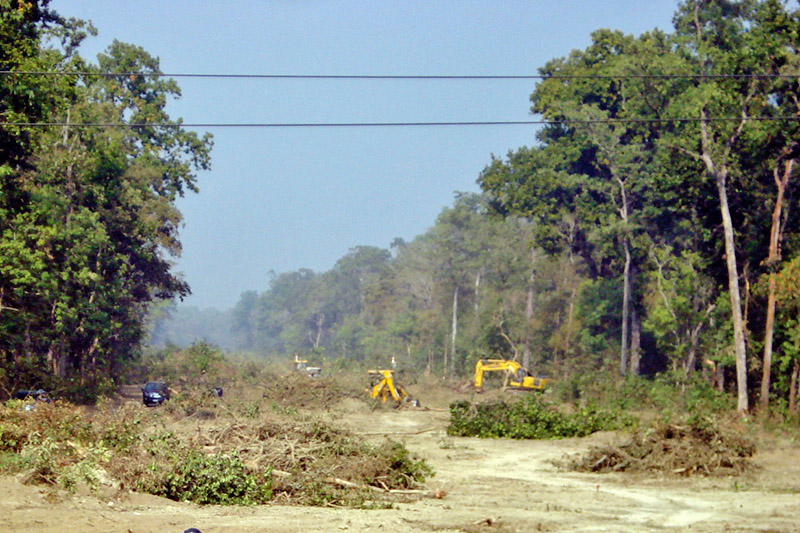Consultant selection process in controversy
Kathmandu, April 4
The Nepali Army (NA) has decided to select an international consultant for the 72.5-kilometre-long Kathmandu-Tarai Fast Track amid the nationwide lockdown that has been implemented to prevent the spread of the coronavirus outbreak.
The NA decided to select the consultant by informing the Public Procurement Office and asking it to ‘seriously evaluate the situation in this crisis’ and to make a lawful decision.
However, the selection decision has been dragged into controversy as the Public Procurement Act was blatantly ignored.
On March 31, NA had forwarded a letter to a South Korean company called Yooshin Engineering Corporation JV asking the firm to sign the agreement as an international consultant of the national pride project.
At that time, NA had issued the ‘Letter of Intent’ (LoI) to Yooshin Engineering JV, which was selected within an hour of the financial proposal being unsealed. In fact, the financial proposal was unsealed within three hours of the
technical proposals of the two final bidders being opened.
But after the issue got dragged into controversy, the NA on April 2 termed the LoI as ‘issue of notification’.
“We will soon ink a formal agreement with the Korean firm,” said Brigadier General Bigyan Dev Pandey, spokesperson for NA.
The ‘LoI’ has moreover landed in controversy as Yooshin Engineering has been blacklisted by the state government of Assam in India for allegedly forging a detailed project report (DPR) of a bridge over the Brahmaputra River.
Selecting a company that has been blacklisted by a state government of a neighbouring country speaks volumes on the corruption that has become rampant in Nepal while constructing large infrastructure projects or while procuring essential goods in large volumes.
Meanwhile, a senior official at the Public Procurement Monitoring Office said that the selection process was done in a rather hasty manner during the nationwide lockdown which raises many questions regarding the legality of the deal.
Meanwhile, Article-37 of the Public Procurement Act-2007 states that before forwarding the LoI there has to be thorough discussions with the selected company even after the technical and financial proposals have been approved. It also states that there has to be clarity on the services that the selected company will be providing and a possible reduction in the service fees that was initially sought.
However, the NA sent the notice of intent to Yooshin Engineering for approval within three hours of opening the financial proposal, irrespective of the provisions of the guidelines in the act.
NA Spokesperson Pandey, however, claimed that the information was sent to the Korean company based on ‘quality and cost’ through legal process.
“There will be further negotiations before the deal is finalised,” he said. “We will follow all the rules and regulations before inking the formal agreement, which will take at least 50 days.”
He added that the fee for the consultancy service will be made public only after the contract agreement has been formally signed. However, according to sources, the fee for the consultancy services hovers around Rs three billion.
On November 28, six international joint venture firms had been shortlisted, including Yooshin Engineering Corporation Korea; Korea Expressway Corporation Korea and Pyunghwa Engineering Consultants Ltd, Korea; JV of China Railway Eryuan Engineering Group Co Ltd; PEC+S Deutschland Planning Engineering Consulting Service GmbH, Germany; JV of SMEC International Pty Ltd Australia; and Dongsung Engineering Co Korea and Korea Engineering Consultants Corp, Korea.
NA, which has been assigned the full responsibility for construction of the project, has expressed its commitment to complete the project by May 13, 2024.
Based on the DPR, the construction cost of the project has been estimated at Rs 175.19 billion, which is Rs 63.19 billion more than the earlier estimate of Rs 112 billion.
However, NA has yet to give a clear answer for the reasons behind the rise in construction cost.
A version of this article appears in e-paper on April 05, 2020 of The Himalayan Times.






